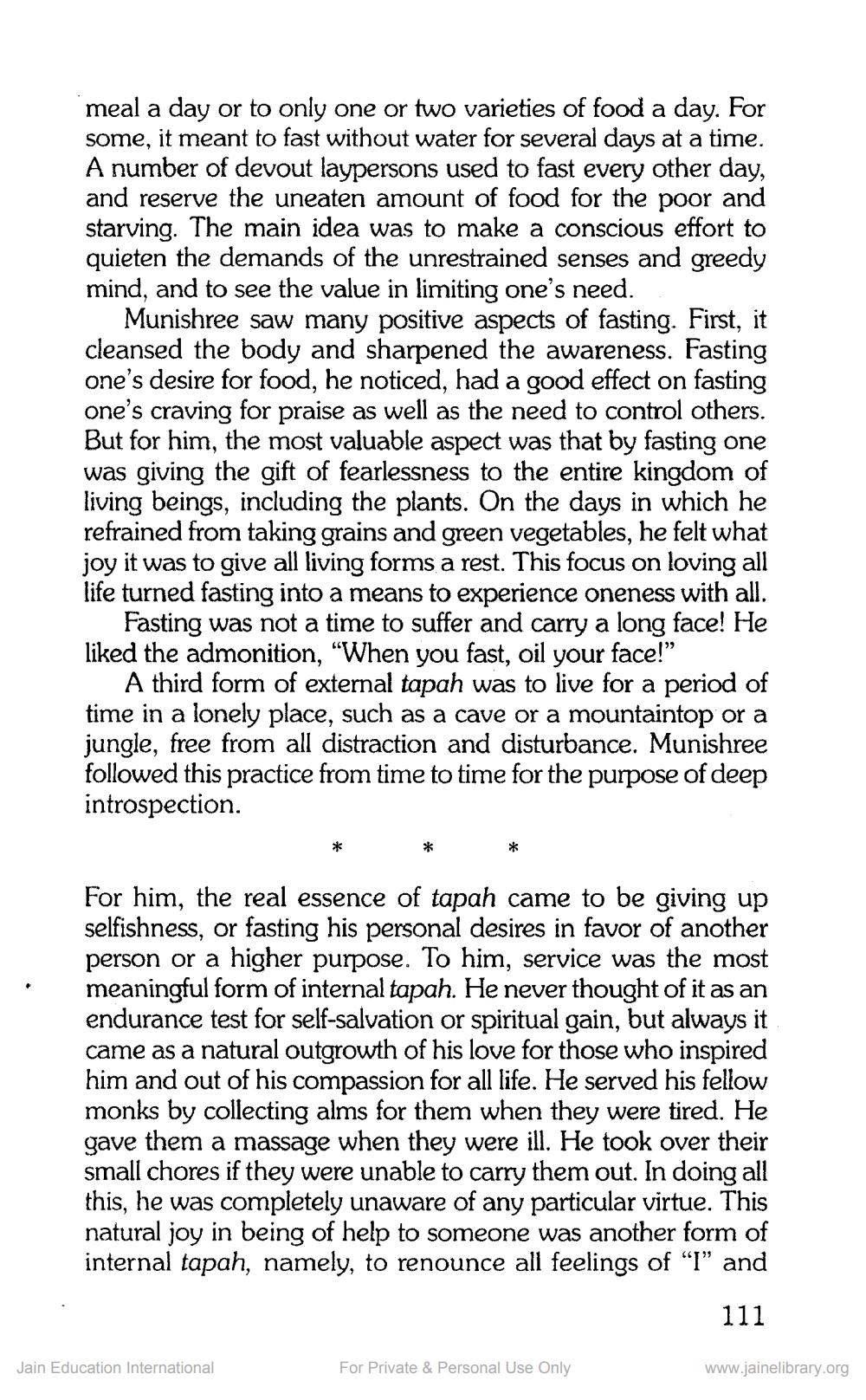________________
meal a day or to only one or two varieties of food a day. For some, it meant to fast without water for several days at a time. A number of devout laypersons used to fast every other day, and reserve the uneaten amount of food for the poor and starving. The main idea was to make a conscious effort to quieten the demands of the unrestrained senses and greedy mind, and to see the value in limiting one's need.
Munishree saw many positive aspects of fasting. First, it cleansed the body and sharpened the awareness. Fasting one's desire for food, he noticed, had a good effect on fasting one's craving for praise as well as the need to control others. But for him, the most valuable aspect was that by fasting one was giving the gift of fearlessness to the entire kingdom of living beings, including the plants. On the days in which he refrained from taking grains and green vegetables, he felt what joy it was to give all living forms a rest. This focus on loving all life turned fasting into a means to experience oneness with all.
Fasting was not a time to suffer and carry a long face! He liked the admonition, "When you fast, oil your face!"
A third form of external tapah was to live for a period of time in a lonely place, such as a cave or a mountaintop or a jungle, free from all distraction and disturbance. Munishree followed this practice from time to time for the purpose of deep introspection.
*
Jain Education International
*
*
For him, the real essence of tapah came to be giving up selfishness, or fasting his personal desires in favor of another person or a higher purpose. To him, service was the most meaningful form of internal tapah. He never thought of it as an endurance test for self-salvation or spiritual gain, but always it came as a natural outgrowth of his love for those who inspired him and out of his compassion for all life. He served his fellow monks by collecting alms for them when they were tired. He gave them a massage when they were ill. He took over their small chores if they were unable to carry them out. In doing all this, he was completely unaware of any particular virtue. This natural joy in being of help to someone was another form of internal tapah, namely, to renounce all feelings of "I" and
111
For Private & Personal Use Only
www.jainelibrary.org




